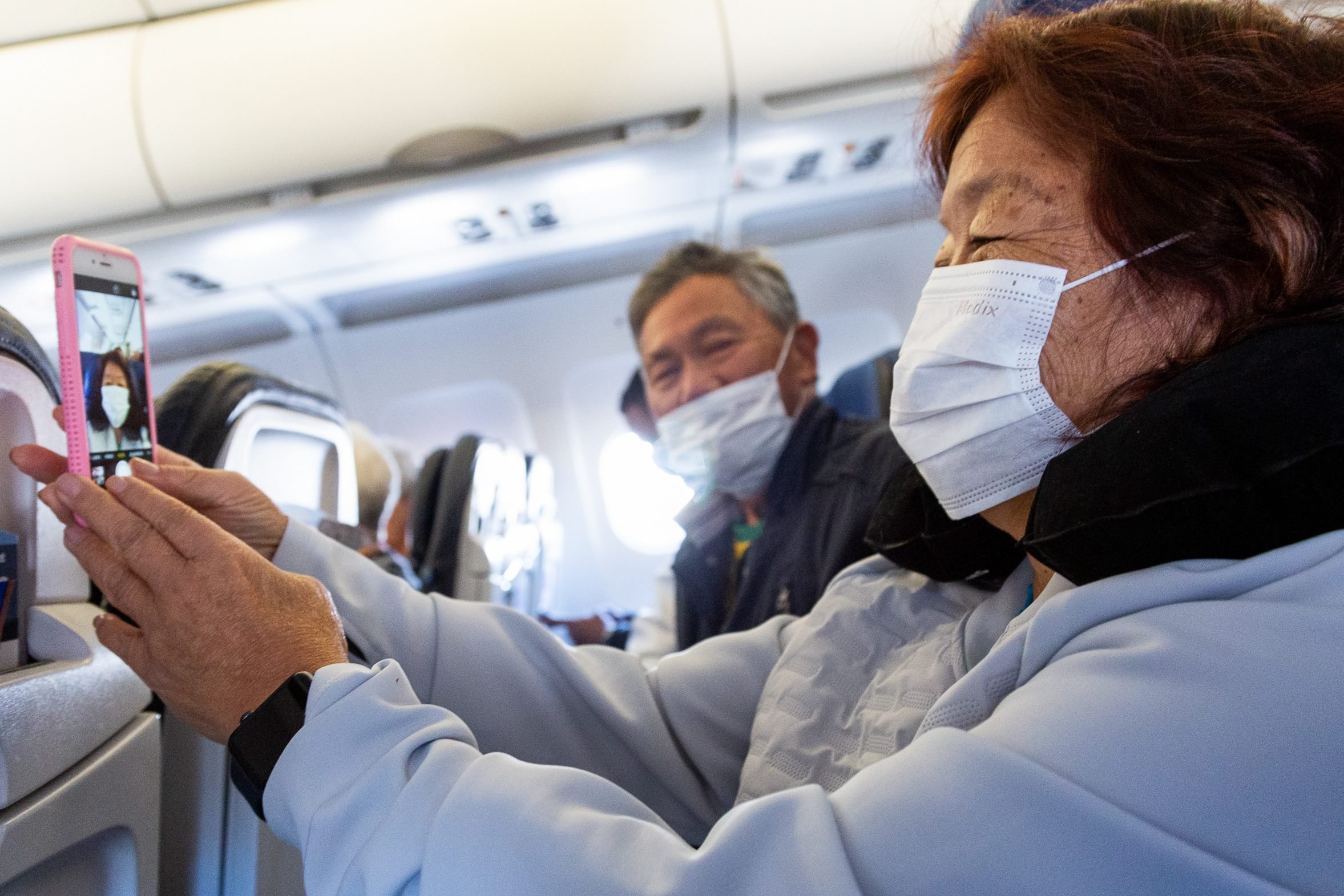
Ready for takeoff?
Air travel is an essential part of the global economy, and as passenger numbers increase, so too might inflight tension in the age of coronavirus. Here’s what flight attendants want you to know before you fly again to make the experience as pleasant as possible for everyone.

Yes, you’ll have to wear a mask
This should come as no surprise by now, but if you haven’t been watching the news, masks are required by most airlines from boarding to deplaning. It’s wise to wear them at the airport, too, and many airports are starting to require it. Yes, they can be scratchy, hot, and uncomfortable, but it cuts down on the possibility of transmission. Depending on the airline, those with medical conditions or young children do not need to wear them. When you’re eating or drinking, you can remove your mask.
If someone removes their mask when they should be wearing one, a flight attendant can ask them to wear one. In fact, many airlines are stocking some extra masks to provide to passengers. According to Roberto Leiro, executive editor of Airways magazine, flight attendants have been advised not to enforce the rule, but just warn the passenger about the consequences of not doing so. Passengers who choose not to wear any face covering may be banned temporarily with the airline, and even in some cases permanently if the passenger is belligerent and compromises the health of those on board with any unruly behavior. These are more behaviors that may get you banned from a plane.
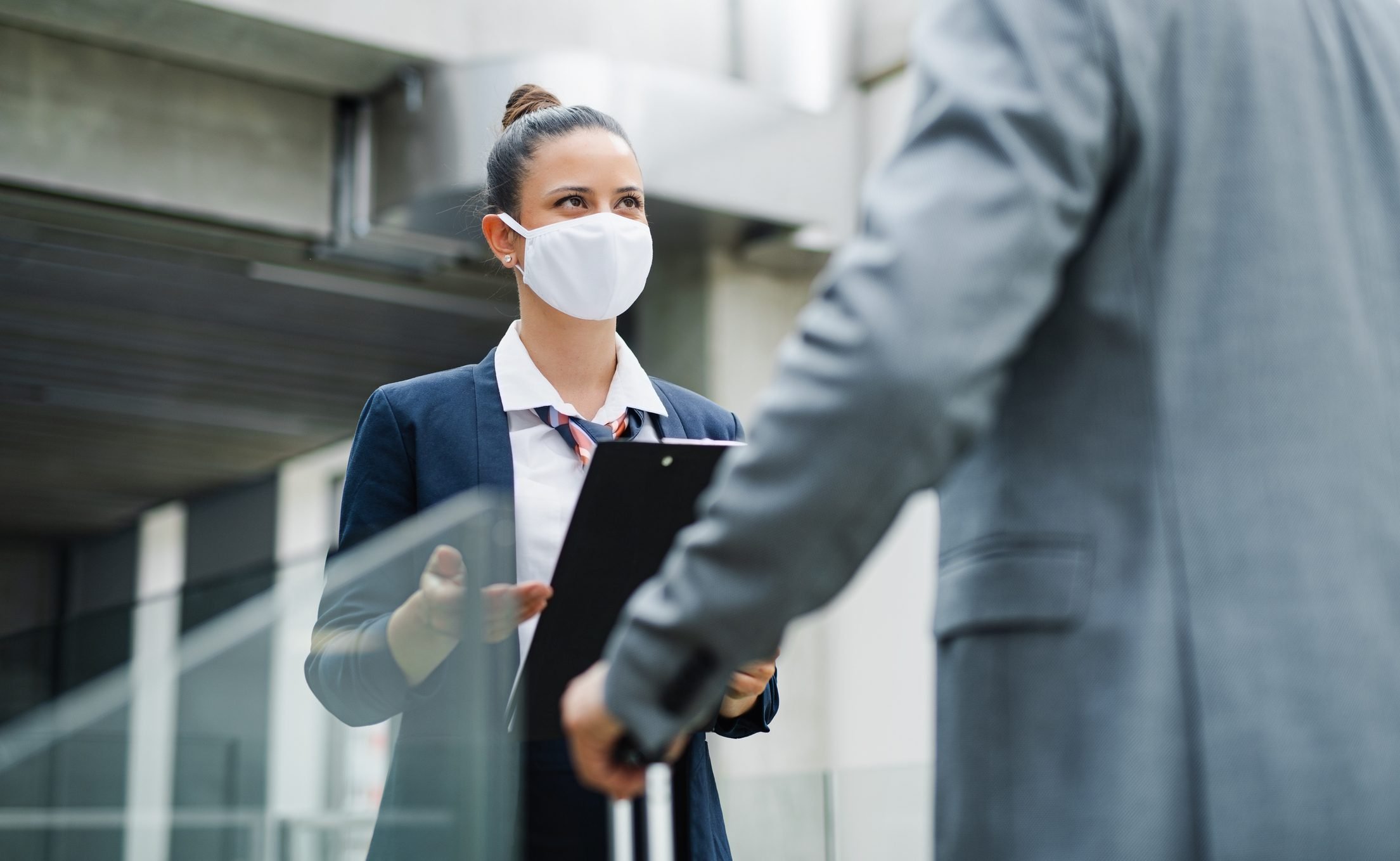
We’ve always been here for your safety
Despite the way airline advertising often depicts flight attendants, their primary role has always been one of safety. Flight attendants must pass grueling training on first aid, problem de-escalation strategies, and emergency evacuation tests and the jobs are hard to get. Now, more than ever, travelers are recognizing the multi-talented role of flight attendants.
According to Seat2ASuite.com, a blog that helps travelers use miles and points to fly in premium cabins, flight attendants are probably just as eager and excited for the return of regular air travel. Mask requirements are making interaction with passengers more difficult. A little bit of the Golden Rule can go a long way; ask how their day is going or give them a kind word of encouragement if you can.

Don’t be surprised if planes are full
Airlines have parked substantial portions of their fleet and curbed schedules due to reduced flying. This allowed airlines to more efficiently fly planes while saving cash, fuel, and unnecessary carbon emissions. As a result, the fewer flights that are flying will carry more people as more passengers take to the skies.
TSA publishes daily statistics on how many people pass through its checkpoints, and numbers are on the rise. Yet, people still act surprised and disdainful when they see more people at the airport or on planes now than in April. Whether or not you think people should travel now versus stay home, airlines are a business with employees to pay. Flight attendants have no control over how many people buy tickets on your flight. Those that, understandably, feel uncomfortable around other people should probably drive or stay home.
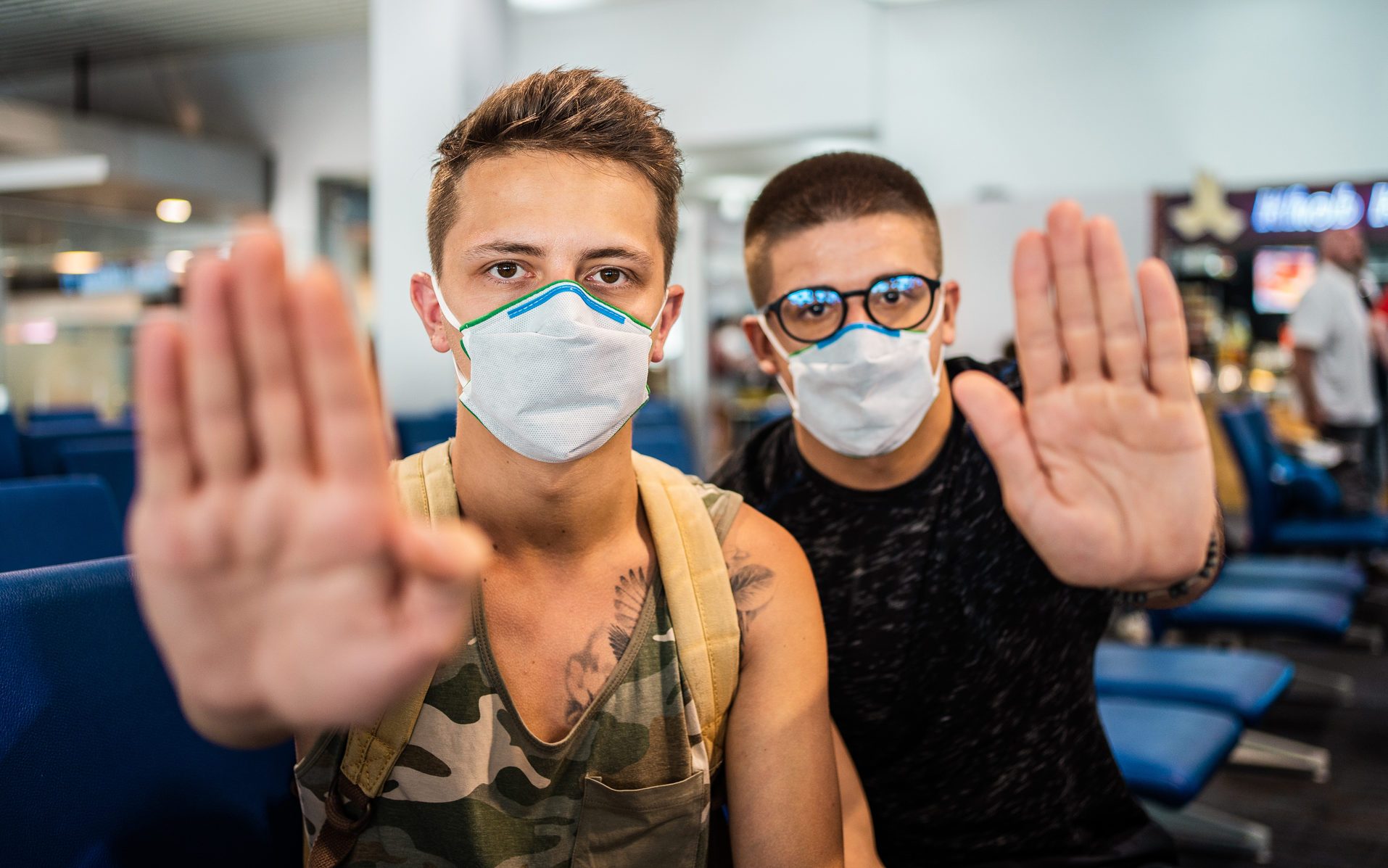
Please stop passenger shaming
Turning to your camera to film people every time you see something you disagree with often leads to uncomfortable situations for everyone, says one flight attendant for a major U.S. airline. Passenger shaming is nothing new, but people are becoming unnecessarily sanctimonious in the airport these days believing they should shame others that don’t do as they do.
Yes, people should follow the rules (wearing a face covering and social distancing), but filming others escalates a situation needlessly. No one wants to have a flight canceled because of a dispute between passengers, and it only adds to a flight attendant’s workload. If you feel uncomfortable, point it out to a member of the flight crew or airport staff to see if there is anything they can do to help. These are the 13 new rules you’ll have to follow next time you fly.
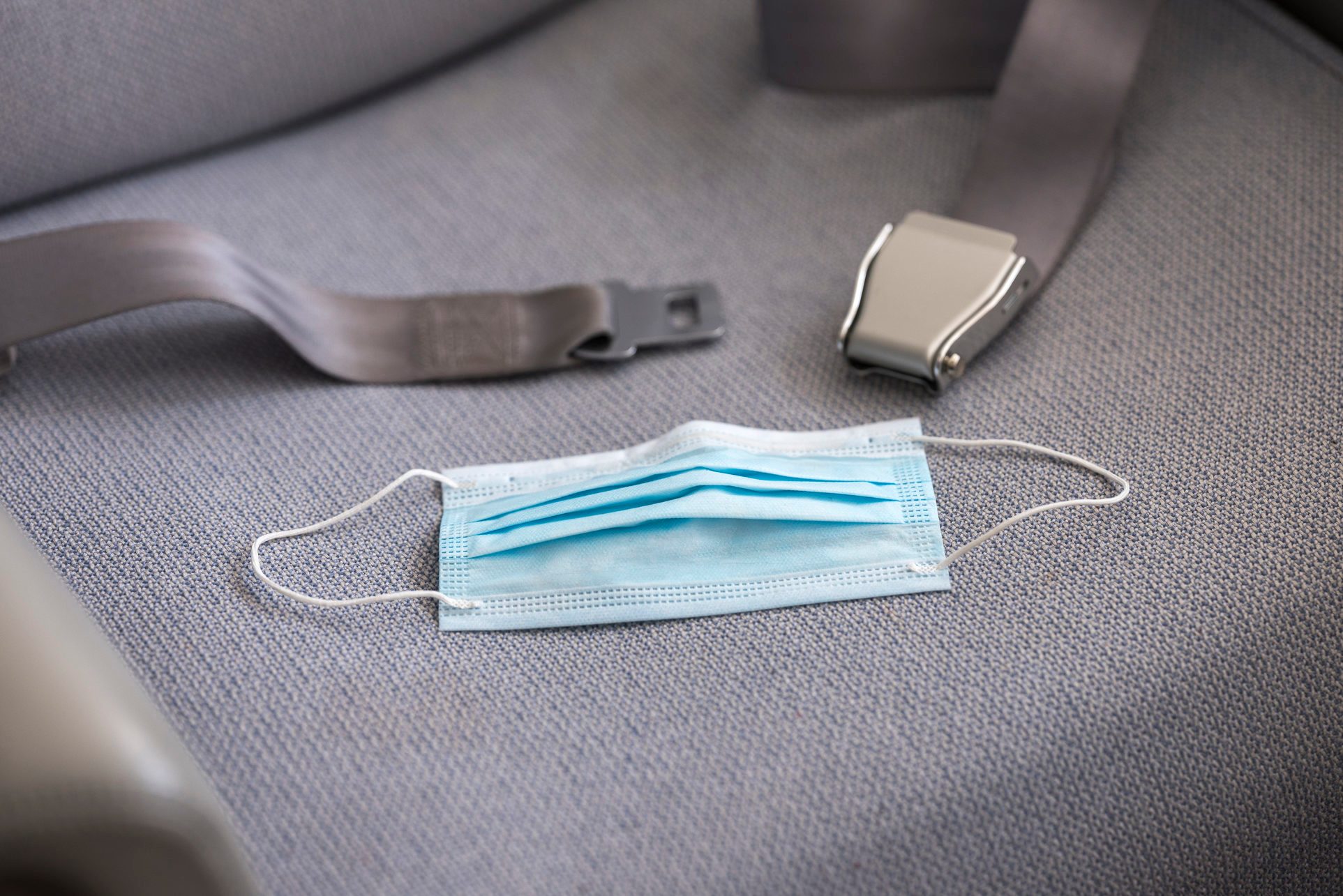
Our airlines may not be blocking middle seats
Before travel started to slowly pick back up, some airlines were blocking the middle seat on flights or restricting the total number of seats for sale on board. This never offered true social distancing of six feet between people, and as more people begin flying, it becomes financially harder for airlines to continue the practice. Instead, airlines are requiring face masks. Some airlines are still blocking the middle seat; at press time these include Delta, JetBlue, and Southwest. While more comfortable, it does not provide six feet of social distancing, especially when considering someone is sitting in front of and behind you.
The good news is, that to date, Gary Leff of View from the Wing points out that there have not been any proven clusters of illness tied to spread from an airplane, and that blocking the middle seats has mostly been a way to calm passengers’ nerves. Still, Delta has been the most aggressive in blocking middle seats as well as capping its first-class cabin at only 50 percent through at least September 30, 2020.
Regardless of whether it reduces risk or not, flight attendants have no control over the airline’s policy. Do your research before purchasing a ticket if this is a concern as flight attendants have fewer options to help once on board. Window, center seat, or aisle, you’ll want to learn the right way to germproof your airplane seat.

Our planes are cleaner than ever
Flight attendants from many major airlines confirm that they have never seen planes so clean, and they trust the work of cleaners that use technology like fogging machines and ultraviolet light to combat disease. This includes cleaning things like seat belts and tray tables, which in the past were not as much a focus as they are now.
Still, bring hand sanitizer and wipes to double down on surfaces that you might touch as a passenger. Flight attendants are wiping down galleys, jump seats, and intercom phones to be extra safe, too.
Many airlines are providing wipes or masks to passengers. On flights more than 900 miles, American Airlines passengers will receive bags with a snack, bottle of water, and sanitizing wipes; the airline stocks a few extra onboard if you lose yours (or the strap breaks). Delta is offering something similar on many flights and giving sanitizing wipes to passengers as they board. Allegiant is providing all passengers with a mask and sanitizing wipe.

Plane bathrooms are still gross
While airlines are doing an excellent job of cleaning planes thoroughly, there is no stopping what happens inside the lavatory. Please don’t go in there barefoot or wearing socks; that is most likely not water on the floor. And since that is a shared space with cramped quarters, please wash your hands and use a paper towel to open, close, and lock the door. Since you’ll use those same hands to touch the armrest when getting in and out of your seat or to open overhead bins, remember to sanitize your hands and keep hands away from your face.
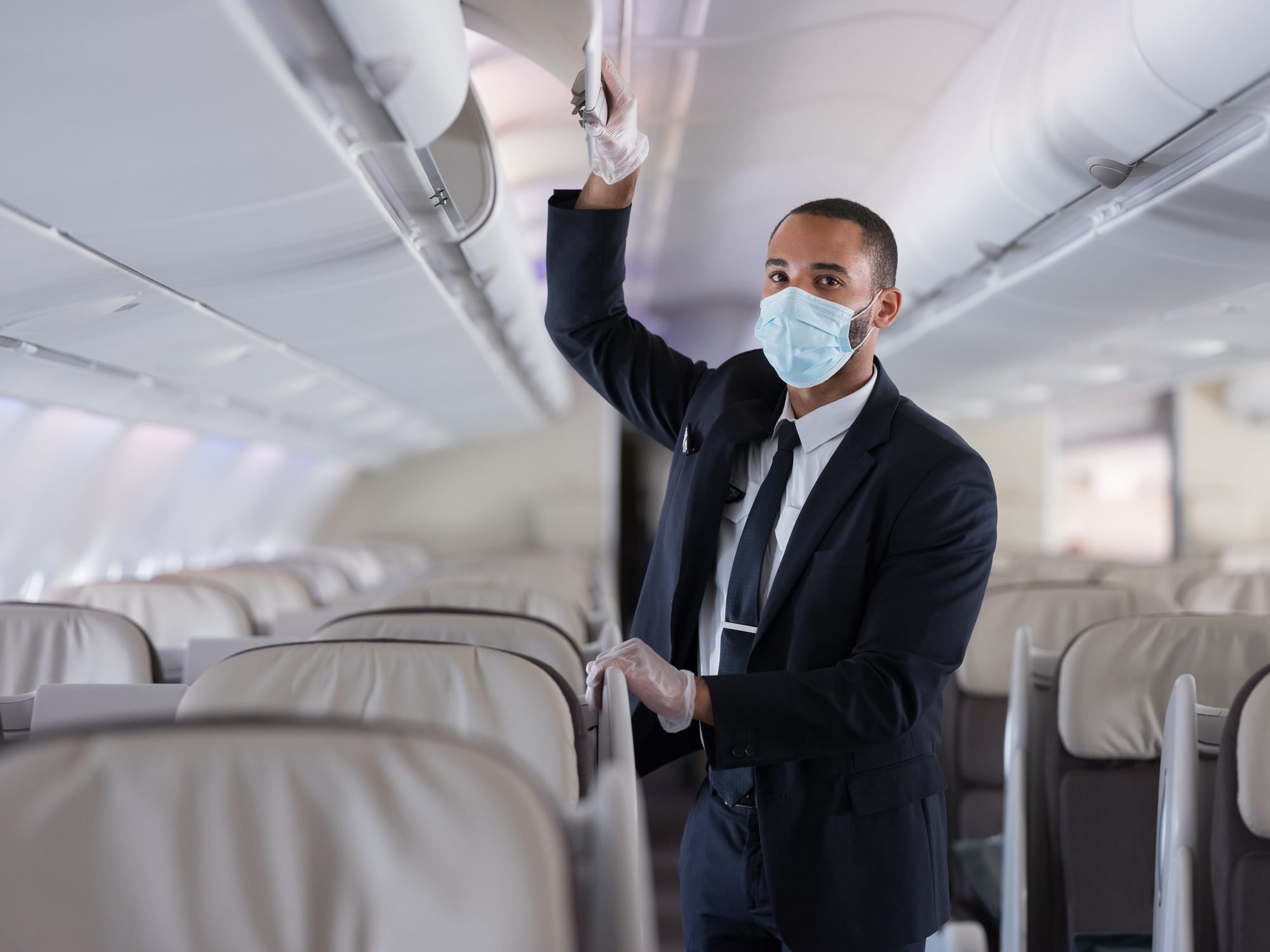
We don’t get paid during boarding
The boarding process is hectic as people filter onto the plane looking for their assigned seat or a spot to stow their luggage. Flight attendants do not get paid until the door of the plane is closed; the pay clock stops when the door opens. This is just part of the job, which means some of the busiest parts of a flight go unpaid while crew checks emergency equipment, loads suitcases, and conducts safety checks. And since they are not “on the clock” during boarding, flight attendants are not supposed to lift heavy bags because their insurance will not protect them if they become injured. Sure, many international airlines may offer these gestures, but their work rules may be different. The added layer of stress that the pandemic causes, which is hard to forget since everyone is supposed to be wearing a mask, makes boarding more tense than usual. Find out 16 other things you should never say to a flight attendant.
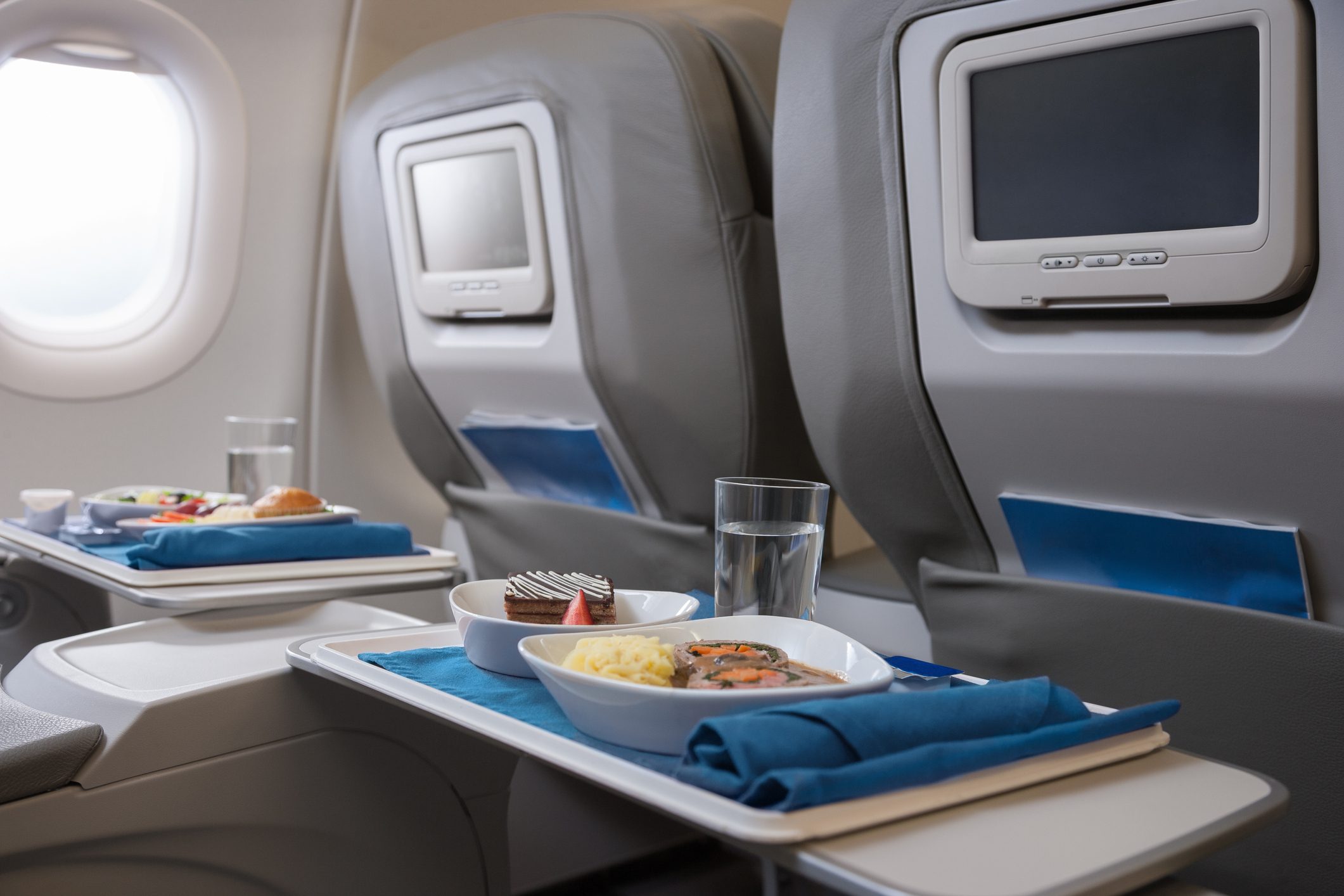
You might not get a meal in first class
These days, first class will be all about the few extra inches of space and free checked bags rather than fancy meals and service. In cost-cutting mode now, and to reduce staff interaction, airlines are mostly offering pre-packaged snacks and some drinks, if any, on domestic flights. American Airlines is still serving meals in first class on longer domestic flights over 2,200 miles where other airlines have just been giving out packaged snacks in the premium cabin. With many airport shops and restaurants closed for now, this is an appreciated move for those paying for the premium cabin. On shorter flights, American, Delta, and United are among the airlines offering some sort of snack bag with water to all passengers.
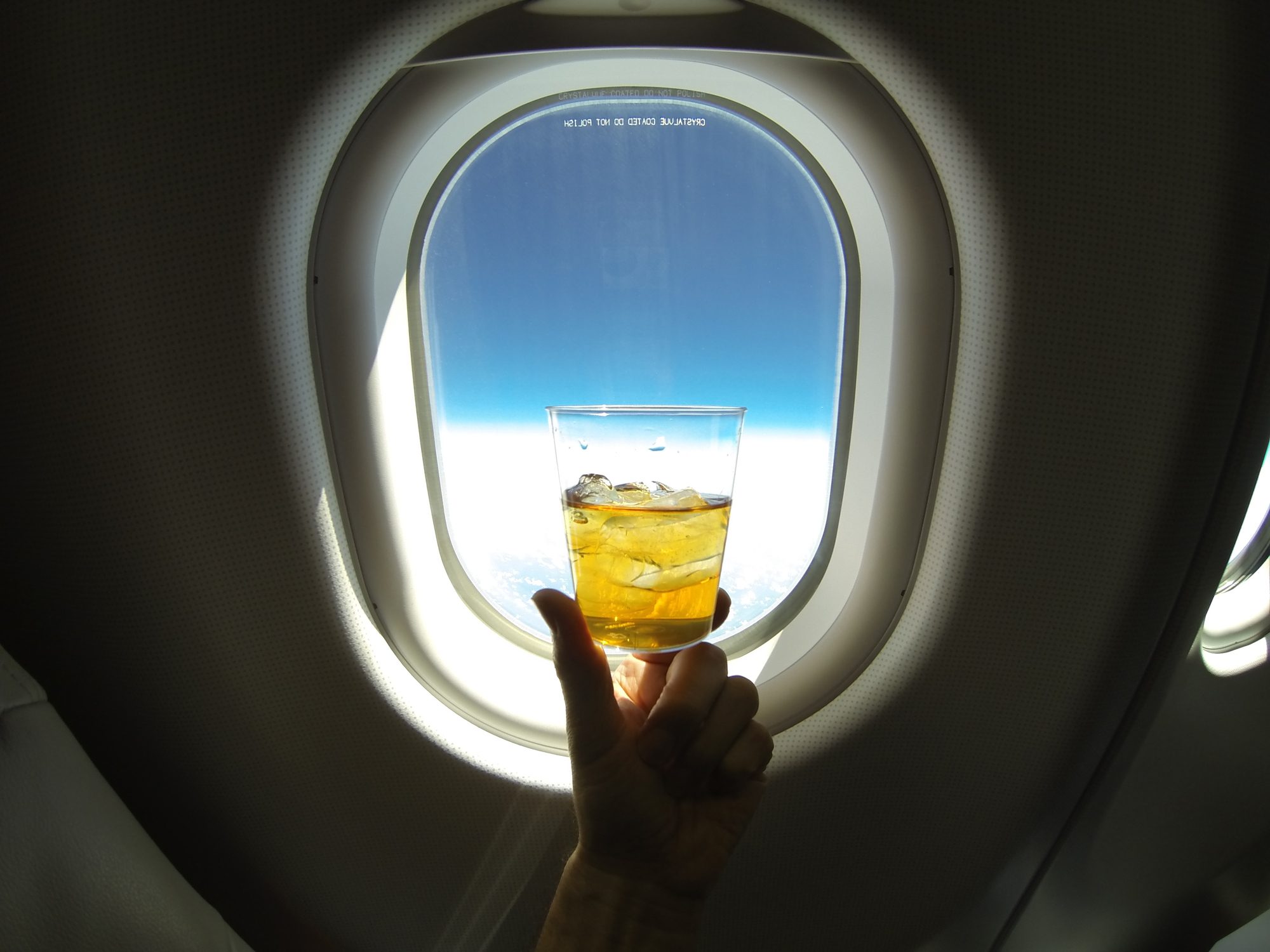
You may be able to have a drink
Most major airline inflight service policies have shifted to a request-only offering during the pandemic to reduce interaction between flight attendants and passengers. Each airline is handling things differently, though. American Airlines has continued to offer an open bar to passengers seated in the first and business class cabins on its flights. Delta Air Lines, however, eliminated alcohol in its premium cabin although it plans to bring wine and beer back this month. That also includes wine and beer for Comfort+ passengers.
While for-sale food and drink service on domestic flights that offer it have been temporarily curtailed, travelers in all cabins can still request a drink. In a Facebook group for frequent fliers, flight attendants are commenting that they are happy to respond to call buttons when it is safe to do so should someone need a drink on flights where they are not in the aisle offering one. It all depends on what has been catered on the aircraft though.
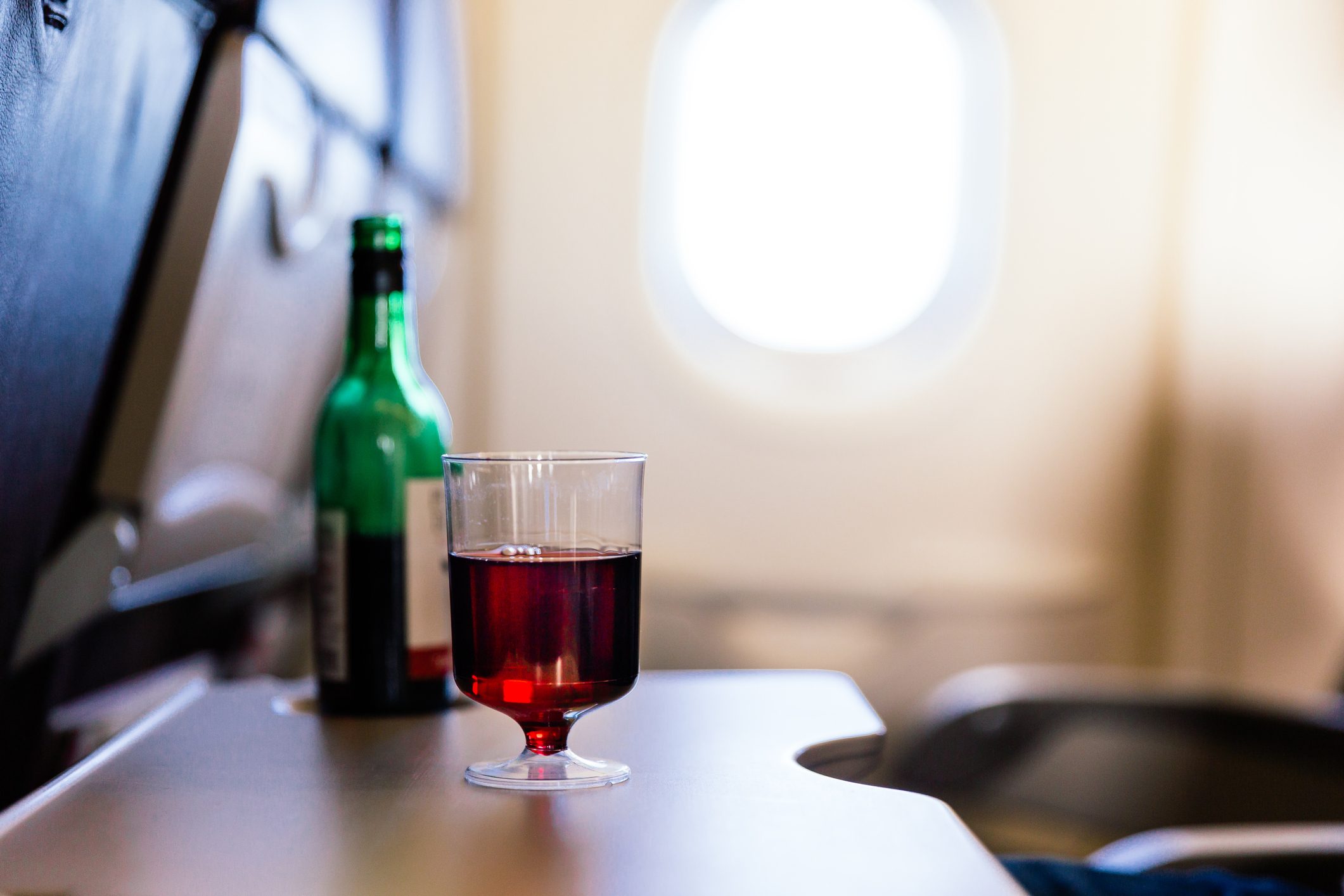
No, you cannot bring your own alcohol
While TSA has lifted the carry-on size restrictions for hand sanitizer, all other liquids in your bag should still be 3.4 ounces or less. If you do sneak your own booze on board, it is an FAA violation to consume it. There is enough tension in the sky right now; why add to it with a buzz anyway?

Give us some space
Flight attendants are used to close talkers and people who like to linger in the cramped galley where they work. But these days, everyone is looking for space. Many flight attendants say that it is OK to use the call button if you need something, especially now; it’s better than crowding the small galley space to ask for it. And please wear a mask when talking to someone (including flight attendants) as respiratory droplets, common when conversing with someone, are one of most likely forms of transmission of coronavirus. Just remember, you might need to be a bit louder as it is hard to hear someone with a mask on, especially when you can no longer read someone’s lips. And as always, avoid touching flight crew. If you need something, a polite verbal request should do the trick.
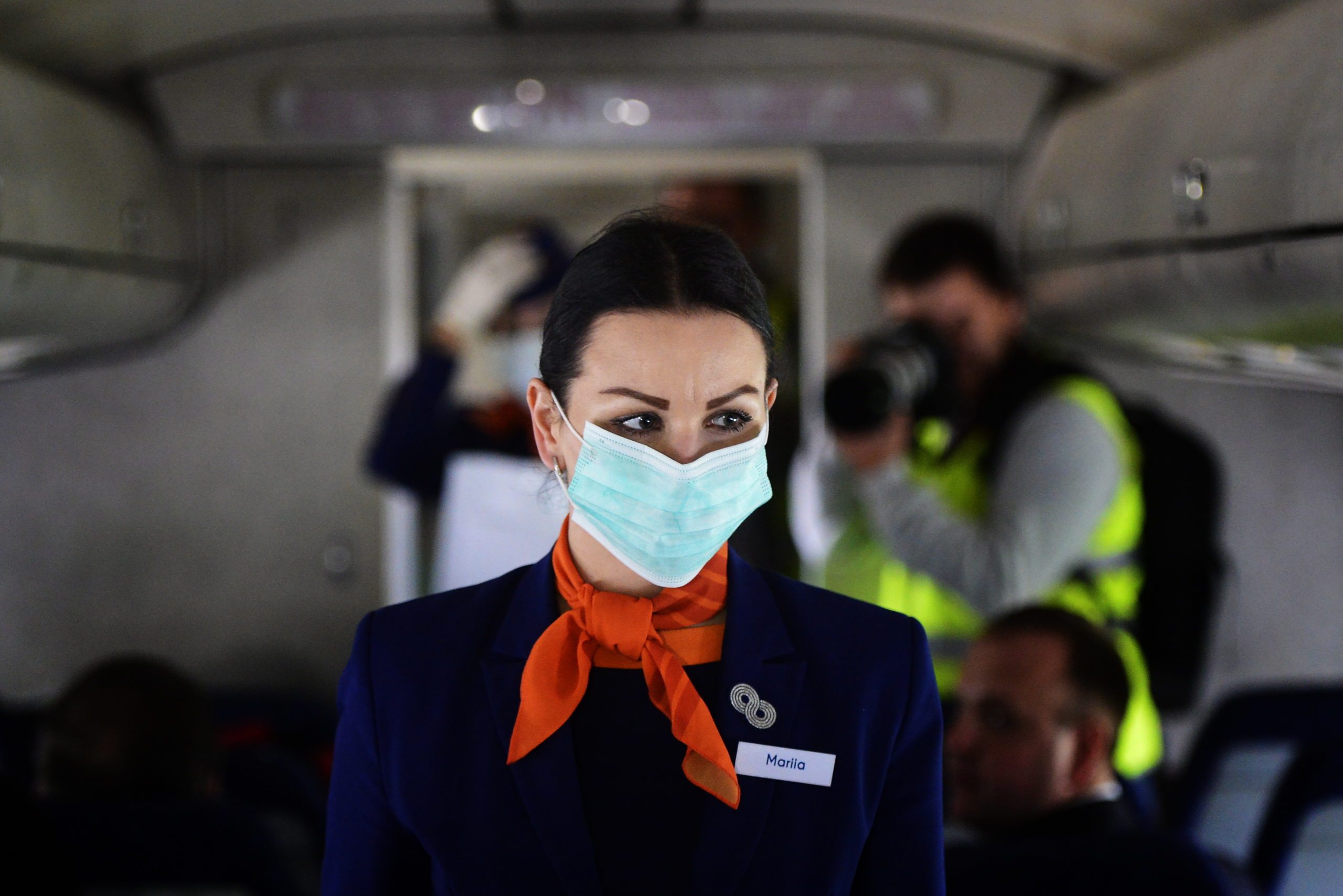
Have some mercy on us, we’re scared about losing our jobs
The CARES Act provided airlines with relief funds if they maintained service to all of the airports they served (with a few granted exceptions) and paid their staff through September 30. On October 1, however, airlines can begin to furlough employees due to lack of travel demand; indeed, United recently announced it may layoff as many as 36,000 employees on that date.
“The threat of a furlough not only has an economic impact on employees, but also there is an emotional component due to uncertainty in their professional career,” Leiro adds. “It’s an additional burden to an already demanding job.” Take it easy on your flight attendants (and all airline employees) because this fall, many are worried about being furloughed due to the COVID-19 pandemic. Next, read on for 22 secrets your flight attendant won’t tell you.
For more on this developing situation, including how life might be different post-lockdown, see our comprehensive Coronavirus Guide.
